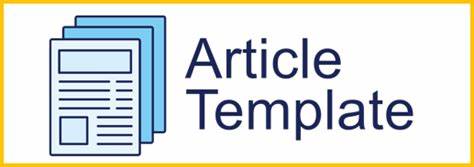PUBLICATION ETHICS STATEMENT
Our editors and staff work hard to ensure that the content we publish is ethically sound. To help us achieve that goal, we closely follow the advice set out in the guidelines and flowcharts on the COPE (Committee on Publication Ethics).
PUBLICATION ETHICS STATEMENT
PRIMER: Journal of Primary Education Research is a scientific periodical journal managed by peer-review, where other scientists (peer-review) evaluate the value and credibility of the article before it is published. This journal is dedicated to publishing scientific articles in the study of Indonesian Primary Education from various aspects and perspectives and predetermined themes. This journal is available online with (ISSN: 3046-9570), and is published twice a year, in June and October. PRIMER aims to be one of the forums for disseminating ideas and research results in the field of Indonesian Primary Education. In addition, it can also be an important reference in the same field. PRIMER is committed to maintaining high ethical standards in scientific publications including peer review, authors, journal editors, and publishers.
ETHICAL GUIDELINES FOR JOURNAL PUBLICATION
PRIMER: Journal of Primary Education Research is an essential building block in the development of a coherent and respected network of knowledge. It is a direct reflection of the quality of the work of the authors and the institutions that support them. Peer-reviewed articles support and embody the scientific method. It is therefore important to agree upon standards of expected ethical behavior for all parties involved in the act of publishing: the author, the editor, the reviewer, the publisher and the society. As publisher of PRIMER: Journal of Primary Education Research, Lembaga Rumah Indonesia, takes its duties of guardianship over all stages of publishing seriously and acknowledges its ethical and other responsibilities.
Publication Decision
The editors of PRIMER: Journal of Primary Education Research are responsible for deciding which of the articles submitted to the journal should be published. The validation of the work in question and its importance to researchers and readers must always drive such decisions. Editors may be guided by the policies of the journal's editorial board and constrained by such legal requirements as shall then be in force regarding libel, copyright infringement and plagiarism. The editors may confer with other editors or reviewers in making this decision.
Plagiarisme
Authors simply submit manuscripts that are free from plagiarism and academic malpractice. Editors, however, double-check each article before publication. The first step is to check for plagiarism by using the Turnitin service.
Fair play
Editors at all times evaluate manuscripts for their intellectual content without regard to race, gender, sexual orientation, religious belief, ethnic origin, citizenship, or political philosophy of the authors.
Confidentiality
The editor and any editorial staff must not disclose any information about a submitted manuscript to anyone other than the corresponding author, reviewers, potential reviewers, other editorial advisers, and the publisher, as appropriate.
Disclosure and Conflict of Interest
Unpublished materials disclosed in a submitted manuscript must not be used in an editor's own research without the express written consent of the author.



